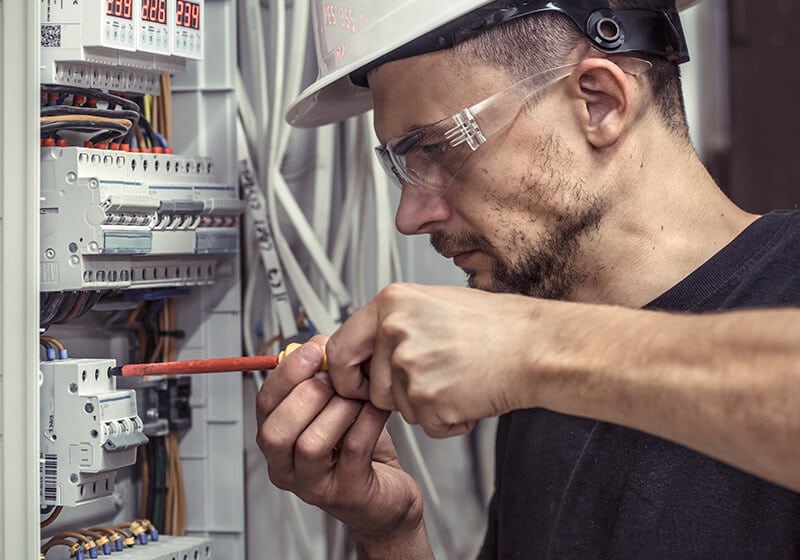
The UK’s petrochemical sector is one of the country’s most important assets. Inextricably linked with the oil and gas industry, the petrochemical sector takes those raw materials and processes them into a wide variety of essential products. Aside from refining crude oil into petrol, diesel, and liquid petroleum gas (LPG), common petrochemicals include ethylene, propylene, benzene, methane, propane, and butane. These chemicals are core ingredients for the production of detergents, plastics, solvents, pesticides, explosives, synthetic rubber and fibres, insulation materials, paints, resins, and so much more. Indeed, it is probably easier to list the things we use every day that do not benefit from petrochemicals.
Electroplating in the petrochemical sector

The petrochemical sector covers a wide range of applications. This includes everything from oil and gas refineries and distillation plants, to storage tanks and distribution centres, to processing sites for a host of different petrochemical-derived products. Each of these applications requires the very best in electroplated components to ensure their continued operation at peak performance.
Why is electroplating so essential to the petrochemical industry? Here are some of the key reasons:

Corrosion resistance

Both crude oil and natural gas are highly corrosive materials, particularly when they come into contact with ferrous metals such as iron and steel. This is due largely to the various sulphides, acids, and chlorides that exist within the oil and need to be filtered out as part of the refining process. Quality electroplating can create a durable sacrificial layer on top of your components’ metal core that will prove resistant to the corrosive effect of oil. Typically, this is comprised of nickel or a zinc/nickel alloy.
Heat resistance

The refining and distillation processes for oil and gas involve heating them to extreme temperatures, which can take their toll on the equipment’s core components. Rapid heating and cooling require an electroplating solution that can handle changes in temperature and extremes of temperature without compromising the material itself. Here at Karas Plating, we often choose copper, nickel, or zinc for these processes, as they are both cost-effective and deliver excellent results.
Wear resistance

As well as high temperatures, petrochemical plants bring in and expel thousands of gallons of raw materials every day. The machinery itself, as well as the miles of pipework involved in their distribution, are therefore subject to significant wear. Nickel-plated components, once again, are an effective way to protect your components from wear over time, greatly reducing the risk of damage and the cost of subsequent repairs.
Friction resistance

As anyone in the petrochemical industry already knows, the refining process involves hundreds of individual parts moving rapidly against and alongside one another. This can cause friction damage over time, which combines all the worst aspects of heat and wear damage. As well as electroless nickel plating (which can apply a durable skin of nickel to your components for their protection), we also offer a phosphate finish. As well as protecting the components, this technique helps reduce the effect of friction by increasing the lubricity of your moving parts.
Other sectors we cover


When using metal plating techniques in the electrical and electronic sectors, the two key concerns are precision and conductivity. Often you have to risk one in order to benefit from the other. This is where our expertise comes in, balancing the pros and cons of each metal, in order to deliver electronic components that work the way you need them to.

Whether we’re talking about the National Grid, criss-crossing the country providing the nation with its electricity, or more renewable sources of power generation like wind turbines and solar panels, electroplating is essential to the power industry. Components undergo great pressure on a day-to-day basis and must be robust enough to withstand the strain.

If components used in the power generation industry are under stress, it is nothing compared to the oil and gas sector. From North Sea oil rigs, to natural gas extraction centres, through to the pipeline infrastructure that gets it to hundreds of sites across the country for processing, the industry needs plated materials that can survive in the harshest of environments.





